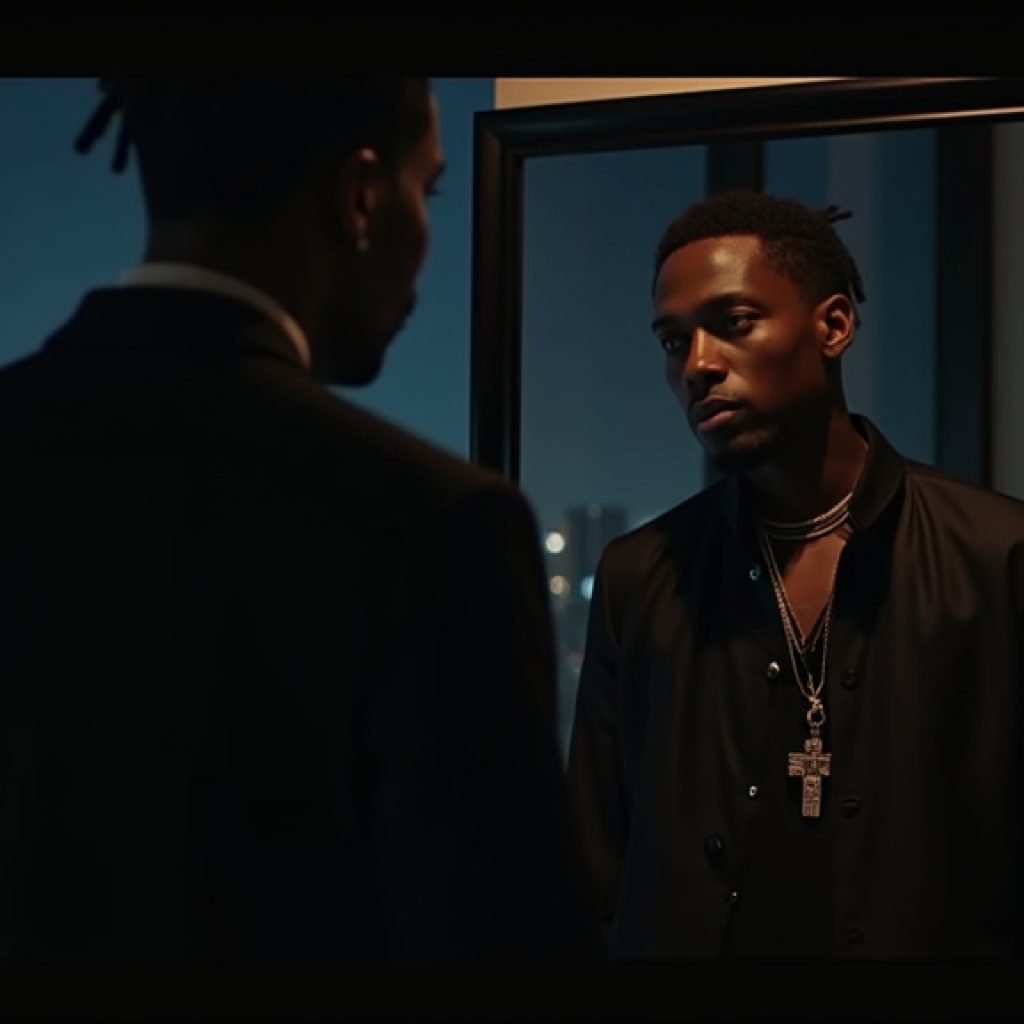Bronx, NY – In a candid revelation that has sparked considerable discussion within the hip-hop community, legendary rapper Fat Joe has admitted to finding himself in a significant personal and cultural quandary: he can’t stop listening to Gunna’s latest album, “The Last Wun,” despite deeply held beliefs about loyalty and an artist’s alleged transgressions.
On a recent episode of his popular podcast, “Joe and Jada,” co-hosted with fellow hip-hop stalwart Jadakiss, Fat Joe confessed to being captivated by Gunna’s new musical offering. The Bronx icon revealed that after a long flight, he played the entire album from start to finish, without skipping a single track. This admission, however, came with a heavy caveat: Joe struggles to reconcile his enjoyment of the music with his personal code, which strongly condemns artists perceived as disloyal.
The Chart-Dominating “The Last Wun”
Gunna’s “The Last Wun” has undeniably made a significant impact on the music landscape since its release on August 8, 2025. The album debuted at an impressive No. 3 on the all-genre Billboard 200 chart, showcasing Gunna’s continued commercial power. More specifically, it claimed the top spot on both the Billboard Rap Albums and Top R&B/Hip-Hop Albums charts, accumulating 80,000 equivalent album units in its first week. A substantial portion of these units came from the massive streaming numbers the album generated, totaling over 104 million on-demand official streams. This success marks Gunna’s seventh top 10-charting effort on the Billboard 200 and solidifies his position as a dominant force in contemporary hip-hop, despite ongoing controversies.
The “Disloyalty” Allegation and the YSL RICO Case
The crux of Fat Joe’s internal conflict stems from Gunna’s (Sergio Kitchens) entanglement with the YSL RICO case. In December 2022, Gunna entered into a negotiated Alford plea deal for a conspiracy charge related to the racketeering indictment against Young Thug’s label, YSL. While his legal team maintained that this plea was made in his best interest and did not constitute cooperation with prosecutors, the rapper did acknowledge YSL as a gang and admitted to witnessing its members’ actions. This move, which allowed Gunna to be released from jail after serving time, led to him being widely labeled a “rat” by some within the hip-hop community and beyond. The perception of betrayal runs deep in a culture that often places a high premium on street loyalty and a strict code of conduct.
Fat Joe’s Unwavering Code of Loyalty
Fat Joe’s strong feelings about disloyalty are not theoretical; they are rooted in personal experience. He shared a poignant story from his past involving a close friend who betrayed him after facing federal charges. This betrayal was so profound that it led Joe to cut off the friend completely, establishing a life principle: “Betrayal carries no second chances.” He recounted how this experience left a lasting impact, shaping his view that loyalty is paramount and that once that code is broken, there is no return. The current trend in hip-hop, where artists who have faced similar allegations continue to achieve massive success and are embraced by fans, troubles Fat Joe. He feels that this acceptance signifies a departure from the foundational principles of the culture.
The Art vs. Artist Debate in Hip-Hop
Fat Joe’s dilemma brings to the forefront the age-old debate of whether one can or should separate the art from the artist. For Joe, in the realm of hip-hop, the two are intrinsically linked. He articulated that the authenticity and lived experiences often reflected in rap music are tied to the artist’s personal conduct and adherence to certain codes. “People want to separate the music from the street,” Joe remarked, “But to me? The two go hand in hand. You either live it or you don’t.”
His co-host, Jadakiss, reportedly challenged Fat Joe on the perceived contradiction of enjoying music from an artist he publicly disavows. Joe, however, remains steadfast, asserting that while he can appreciate the musical craft, his personal principles and loyalty to the culture prevent him from giving his full endorsement. This internal conflict highlights the complex dynamics at play in the modern hip-hop industry, where commercial success, street credibility, and personal ethics often collide.
Fat Joe’s introspection serves as a potent reminder that for some, particularly pioneers of the genre, hip-hop remains more than just music; it is a culture built on honor, loyalty, and a shared understanding of unwritten rules. As Gunna’s “The Last Wun” continues to dominate playlists and charts, the conversation initiated by Fat Joe ensures that the deeper implications of artistic integrity and street loyalty remain a vital part of the ongoing narrative in hip-hop stories.























